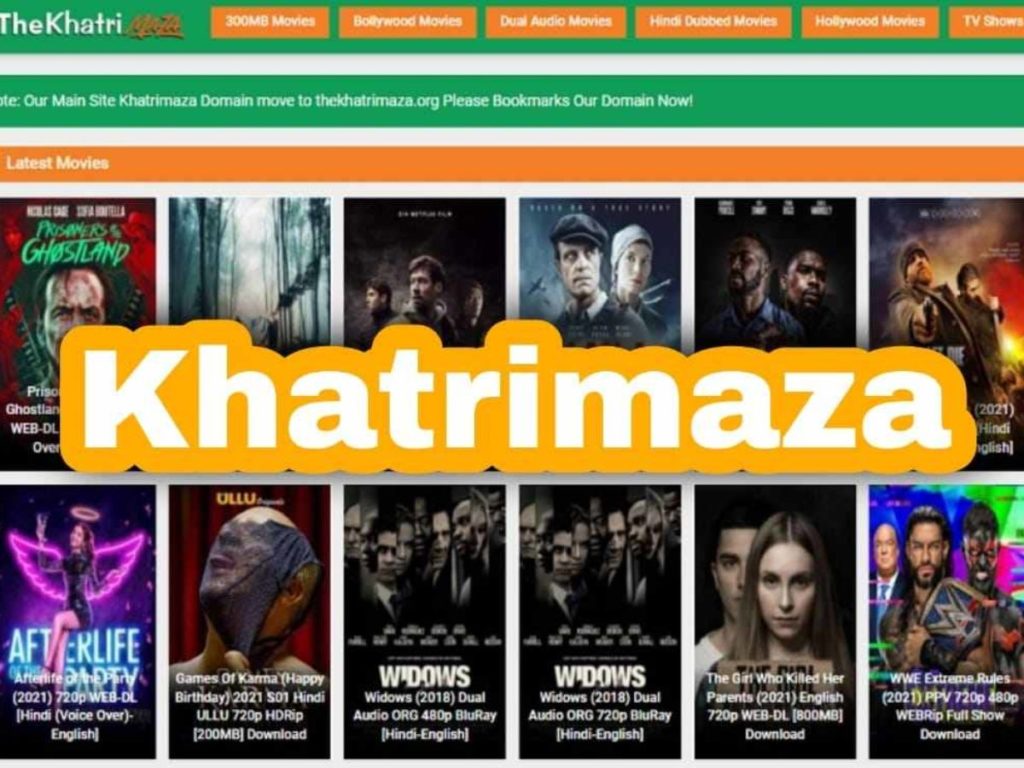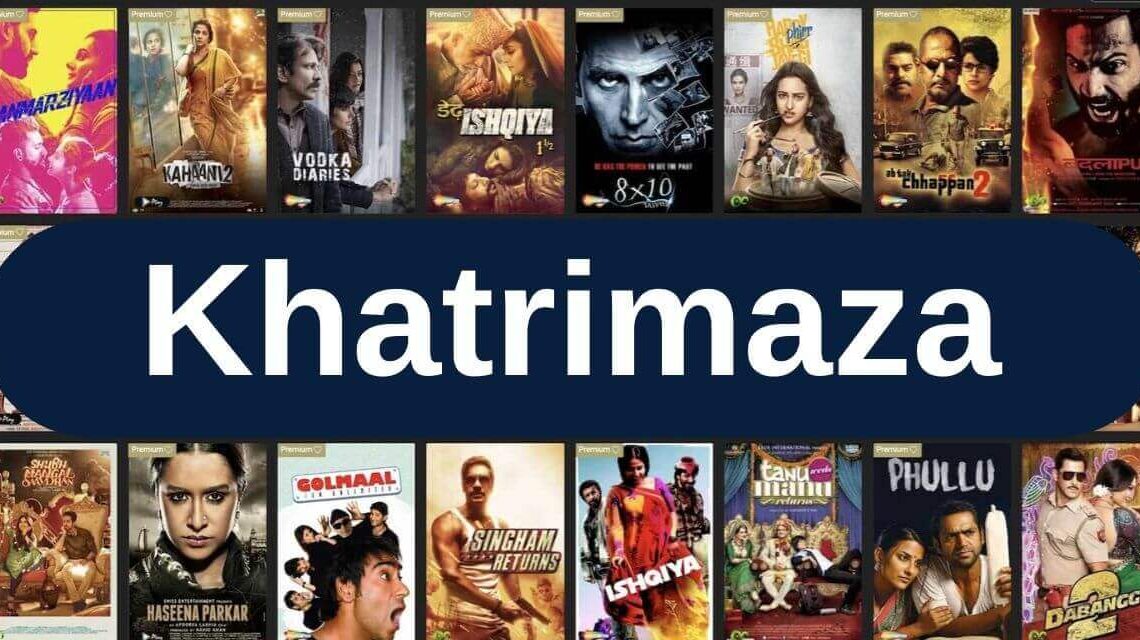In an era dominated by streaming services, is the allure of pirated content, particularly websites like Khatrimaza, truly waning, or is it experiencing a resurgence in the shadows? Despite the undeniable convenience and legal standing of platforms such as Netflix and Amazon Prime, the persistent popularity of Khatrimaza and similar sites suggests that the demand for free, easily accessible, and often unauthorized content remains remarkably strong.
The digital landscape, in its relentless evolution, has birthed a duality: the officially sanctioned platforms that offer a curated viewing experience alongside the clandestine realms where content flows freely, often at the expense of copyright holders. Khatrimaza, a name synonymous with the illegal downloading of movies, TV shows, and other media, operates in this latter domain. It's a website that has, over time, become a controversial yet recognizable name, especially within specific demographics. While the operators of such sites often face legal challenges, their persistence and the undeniable demand they cater to beg the question: What factors drive the continued use of these platforms, and what does this say about the current state of media consumption?
The online world is a vast, often unregulated space, and within it, the concept of copyright and intellectual property has often struggled to keep pace with the ease of digital distribution. This creates an environment where websites like Khatrimaza can thrive, providing access to content that would otherwise be restricted by geographical limitations, subscription fees, or simply the cost of purchasing the media outright. For many users, particularly in regions with limited access to legal streaming services or those facing economic constraints, these websites offer an enticing proposition: entertainment on demand, with no financial obligation. However, it's crucial to understand the ethical and legal ramifications of such actions. Downloading content from Khatrimaza constitutes copyright infringement, which carries potential legal consequences, including fines and even prosecution, depending on the jurisdiction. Moreover, it deprives creators, producers, and distributors of the revenue that supports the ongoing production of the content we enjoy. The risk, therefore, extends beyond mere legal matters, impacting the livelihoods of those involved in the creative industries.
Khatrimaza, in its various iterations, has adapted to evade detection and maintain its accessibility. It often operates through a network of proxy servers and mirrors, allowing it to circumvent blocks imposed by internet service providers and copyright enforcement agencies. This cat-and-mouse game is a testament to the persistent demand for the services it provides. The website's format, with its emphasis on 300MB movies, caters specifically to users with limited bandwidth or those who prefer to download files quickly. This offers a certain level of convenience. Furthermore, the site often features a wide range of content, including Bollywood, Hollywood, South Indian movies, and regional language films, catering to diverse viewing preferences.
The specifics of Khatrimaza's content offerings can change rapidly. It often features the latest releases, including films that are still in cinemas or have recently been released on other platforms. The website's ability to provide relatively up-to-date content is one of its primary attractions. A quick search can bring users face-to-face with titles, such as "Adult 18+ Farebi Yaar (Pt2) Ullu Originals" and "Download Body Heat [18+] 2010 BluRay 720p," as indicated in previous mentions. While these titles reflect the broad spectrum of content available, it's worth noting the prevalence of content classified as "18+," which carries its own set of ethical concerns and legal considerations. The availability of such content, often without any age verification measures, underscores the lack of regulatory oversight that characterizes many illegal download sites.
The allure of these platforms is further amplified by the challenges associated with accessing content through legal channels. Subscription fees for streaming services can accumulate, especially when users subscribe to multiple platforms to access a broad range of content. Geographical restrictions limit access for some users, preventing them from viewing content that is available in other regions. Furthermore, the convenience of downloading content to watch offline on devices like smartphones and tablets is a significant advantage for many users, especially those with limited internet connectivity or those who travel frequently.
However, beyond convenience and cost, there are underlying factors that influence media consumption and the appeal of sites such as Khatrimaza. These include the cultural importance of cinema and entertainment, the desire to stay abreast of the latest releases, and the need to find cost-effective entertainment options. The availability of content in a wide range of languages and genres is a further factor. The ability to cater to niche audiences and provide content that is not readily available on mainstream platforms adds to the appeal of these websites.
The operators of Khatrimaza and similar websites are not primarily concerned with providing a high-quality user experience, in that the website is riddled with advertising, many of which are dubious. It's also important to note that downloading from these sites can expose users to security risks. Illegal download sites are often vectors for malware and viruses, as advertisements and download links can be used to distribute malicious software. This creates a significant risk for users, who may unknowingly compromise their devices and personal data. This can also involve phishing attempts and data breaches.
One of the most crucial aspects when considering the use of websites like Khatrimaza is the ethical dimension. The act of downloading copyrighted content without authorization is, at its core, an infringement of intellectual property rights. This impacts the livelihoods of those involved in the creative process, from the writers and actors to the producers and distributors. By supporting illegal download sites, users inadvertently contribute to the erosion of the creative industries. This can further disincentivize the production of quality content, which is then replaced by lower-quality content that will soon flood the digital landscape.
While it's easy to understand the motivations of those who utilize these sites, the potential long-term effects must be considered. The proliferation of pirated content can weaken the economic foundations of the entertainment industry, potentially leading to less innovation, reduced investment in new projects, and a decline in the overall quality of the content produced. In the digital age, where content creation is increasingly reliant on the fair compensation of creators and the enforcement of intellectual property rights, the use of sites like Khatrimaza represents a complex ethical challenge.
The legal implications also cannot be ignored. Downloading copyrighted content without authorization violates copyright laws, and in many jurisdictions, it carries significant penalties. These penalties can range from substantial fines to civil lawsuits, and in some cases, even criminal charges. The risk of facing such consequences is a crucial factor that users must consider before downloading content from unauthorized sources. Moreover, engaging in such activities can expose users to privacy risks and security vulnerabilities, as such sites are often riddled with malicious software and intrusive advertising.
Consider the context provided: "Khatrimaza 2023 is a notable proxy website to download bollywood movies, from khatrimaza.com you can come to bollywood as well as hollywood, south india hindi named movies, and khatrimaza tamil movie download." This statement offers a snapshot of the site's offerings. The inclusion of "khatrimaza tamil movie download" illustrates the site's attempt to cater to a specific linguistic and cultural demographic. The user can readily download and watch such content at any time. The emphasis on Bollywood and Hollywood movies suggests the site's broad appeal and ability to attract a wide audience. The availability of movies in multiple languages is another important feature, as is the option to download in smaller file sizes such as 300MB. This is important for users with slower internet speeds.
Legal streaming services, and other legitimate platforms, are working to provide more affordable and accessible ways to consume media content. The rise of subscription models, where users can access a vast library of movies and TV shows for a monthly fee, has undoubtedly impacted the popularity of illegal download sites. However, these platforms are always struggling to keep up with the vast and ever-changing needs of their user base.
In conclusion, the continued existence and persistence of websites like Khatrimaza highlight a series of complex challenges in the digital age. While they offer convenience and cost savings, they simultaneously raise a host of ethical, legal, and security concerns. As technology advances, the battle between content creators and those who infringe on their rights continues. Users must weigh the immediate benefits of accessing free content against the potential long-term consequences of contributing to the decline of the creative industries and the risks of engaging in illegal activities. The future of media consumption will likely depend on how effectively legal platforms can address the needs and preferences of users, while simultaneously protecting the rights of creators and ensuring a sustainable and ethical ecosystem.


